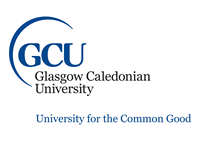Dr L McSorley
No more applications being accepted
Funded PhD Project (Students Worldwide)
About the Project
Productivity not only drives economic performance but is key to increasing wages, decreasing inequality and increasing living standards across the different regions of the UK. Productivity is measured as output per worker and whilst Scotland performs well against other UK regions further research is needed to understand the structure of Scottish productivity and future areas of opportunity. Inclusive growth has become an important narrative across Scottish policy from a key objective of Scotland’s Economic Strategy to a stated aim of City Region deals. To increase productivity the UK has to maximise the resources available. This means tackling social exclusion, labour market inactivity and the lack of equality of opportunity. At an EU level unemployment is falling, GDP is increasing yet those at risk of poverty and social exclusion is increasing (Eurostat 2017). Only 4% of European Funds for Strategic Investment was spent on ‘social infrastructure’ (skills, training, support for vulnerable groups). This project would examine ways in which tackling equalities issues could contribute to solving the UK’s productivity problem.
The aim of this project would be to provide evidence and impact of the theoretical, statistical and policy influence of the inclusive growth narrative and its role in the ‘productivity puzzle’
Funding Notes
The studentship of £19,300 per year is for a period of three years, subject to satisfactory progress. The studentship covers the payment of tuition fees (currently £4,500 for UK/EU students or £13,000 for international students) plus an annual stipend of £14,800 for UK/EU students or an annual scholarship of £6,300 for international students.
Applicants will normally hold a UK honours degree 2:1 (or equivalent); or a Masters degree in a relevant subject area. Equivalent professional qualifications and any appropriate research experience may be considered. English language level: IELTS score of 6.5 (or equivalent) with no element below 6.0 required.

 Continue with Facebook
Continue with Facebook

